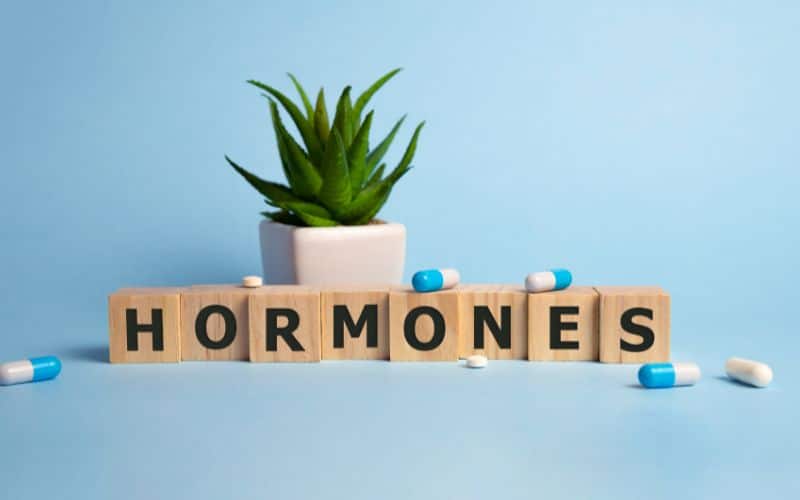Cortisone shots are a common treatment for joint pain and inflammation. They are often used to treat conditions such as arthritis, tendinitis, and bursitis. While cortisone shots can be effective in reducing pain and inflammation, they can also have side effects, including weight gain.
Weight gain after a cortisone shot can be a concern for many patients. The amount of weight gain can vary depending on factors such as the dose of cortisone, the frequency of injections, and the individual's metabolism. Some patients may experience a few pounds of weight gain, while others may gain more significant amounts of weight. It is important to note that weight gain is not a guaranteed side effect of cortisone shots, and not all patients will experience it.
So, how long does weight gain last after a cortisone shot? The answer to this question is not straightforward, as it can vary from patient to patient. In some cases, weight gain may be temporary and may subside within a few weeks of the injection. However, in other cases, weight gain may be more persistent and may last for several months or even longer. It is important to discuss any concerns about weight gain with your healthcare provider, as they can provide guidance on managing this side effect.
Contents
What is Cortisone Shot?
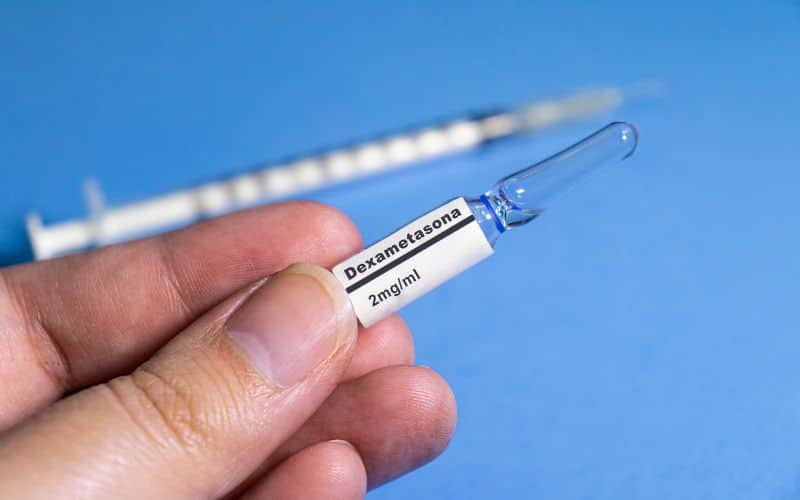
Cortisone shots, also known as corticosteroid injections, are commonly used to treat inflammation and pain in various parts of the body. The shot contains a synthetic version of cortisol, a hormone produced by the adrenal gland that helps regulate inflammation and stress. The cortisone shot is injected directly into the affected area, such as a joint, tendon, or bursa, to reduce inflammation and relieve pain.
Cortisone shots are often used to treat conditions such as arthritis, bursitis, tendonitis, and other inflammatory conditions. They can also be used to treat allergic reactions, skin conditions, and some types of cancer. Cortisone shots are typically given by a healthcare professional and can be administered in a doctor's office, clinic, or hospital.
While cortisone shots can be effective at reducing inflammation and relieving pain, they are not without their risks and side effects. It is important to discuss the potential risks and benefits of cortisone shots with your healthcare provider before receiving the injection. Some potential side effects of cortisone shots include:
- Temporary increase in pain and inflammation
- Skin discoloration or thinning
- Infection at the injection site
- Nerve damage
- Increased blood sugar levels
Overall, cortisone shots can be a useful tool in managing pain and inflammation, but they should be used judiciously and under the guidance of a healthcare professional.
Understanding Weight Gain After Cortisone Shot
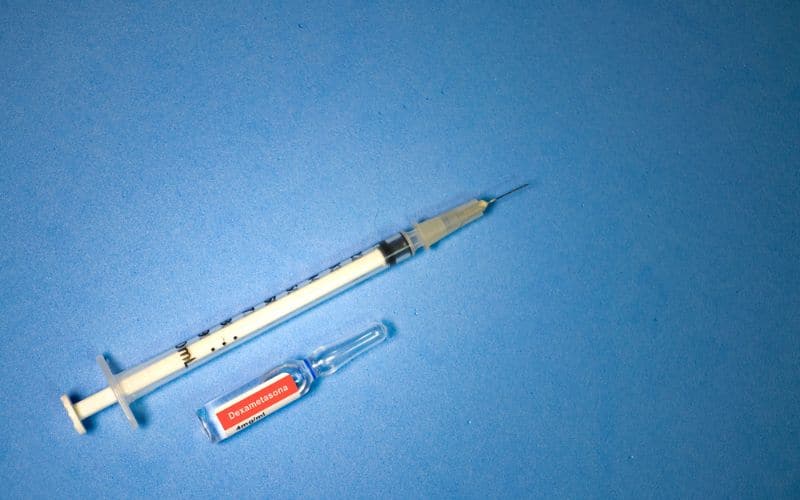
Cortisone shots are a common treatment for various inflammatory conditions, such as arthritis, tendonitis, and bursitis. While cortisone shots can provide effective pain relief, they can also cause weight gain in some patients. In this section, we will discuss the mechanism of weight gain after cortisone shot and the timeframe in which it can occur.
Mechanism of Weight Gain
Cortisone shots contain corticosteroids, which are synthetic versions of the hormone cortisol. Cortisol is produced naturally in the body by the adrenal glands and is involved in regulating various bodily functions, including metabolism, immune response, and stress response. When cortisol levels are high, it can cause an increase in appetite and the accumulation of fat in certain areas of the body, such as the abdomen and face.
Corticosteroids in cortisone shots can mimic the effects of cortisol in the body, leading to an increase in appetite and fat accumulation. Additionally, corticosteroids can cause fluid retention, which can also contribute to weight gain.
Timeframe of Weight Gain
Weight gain after cortisone shot can occur in the short-term or long-term. In the short-term, patients may experience weight gain due to fluid retention, which can occur within the first few days after the injection. This type of weight gain is usually temporary and can resolve on its own within a few weeks.
In the long-term, weight gain after cortisone shot can occur due to an increase in appetite and fat accumulation. This type of weight gain can occur gradually over several months or even years and can be more difficult to reverse.
It is important to note that not all patients who receive cortisone shots will experience weight gain. Factors such as the dosage and frequency of the injections, as well as the patient's individual metabolism and lifestyle, can all play a role in determining whether weight gain occurs.
Overall, weight gain after cortisone shot can be a potential side effect of the treatment. Patients who are concerned about weight gain should discuss their concerns with their healthcare provider and explore alternative treatment options if necessary.
Factors Influencing Weight Gain After Cortisone Shot
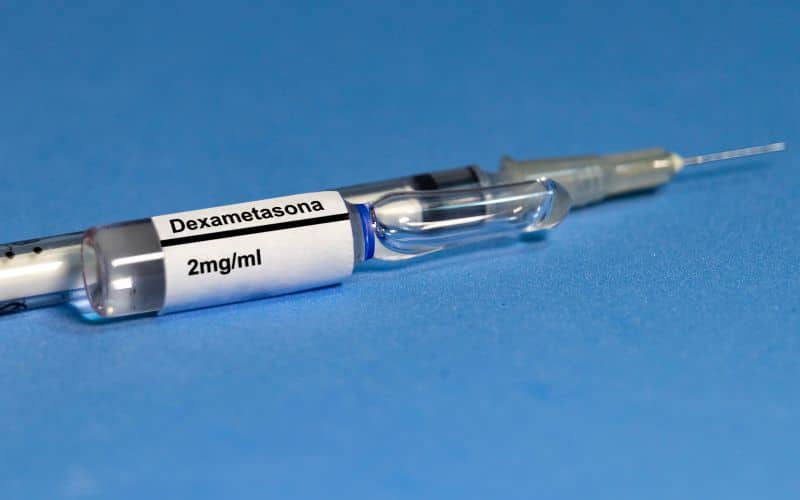
When it comes to weight gain after cortisone shot, there are several factors that can influence how long it lasts and how much weight is gained. These factors include dosage, frequency, individual metabolism, diet, and lifestyle.
Dosage
The dosage of cortisone administered by the healthcare provider can have a significant impact on weight gain. Higher doses of cortisone are more likely to cause weight gain than lower doses. According to the Cleveland Clinic, a few cortisone injections over 3-6 months are unlikely to produce severe side effects such as weight gain. However, if an individual receives more than two to three steroid or cortisone shots per year, it may lead to weight gain.
Frequency
The frequency of cortisone shots can also affect weight gain. Receiving multiple cortisone shots in a short period of time can increase the likelihood of weight gain. The Mayo Clinic reports that the medication is released into the injection site, and typically, cortisone shots include a corticosteroid medication to relieve pain and inflammation over time and an anesthetic to provide immediate pain relief. However, some people have redness and a feeling of warmth of the chest and face after a cortisone shot.
Individual Metabolism
Individual metabolism plays a role in how long weight gain lasts after a cortisone shot. Cortisone shots cause weight gain by altering the body's electrolyte and water balances, as well as its metabolism. Some people may gain more weight than others due to differences in their metabolism.
Diet
Diet is another factor that can influence weight gain after a cortisone shot. A diet high in calories and low in nutrients can exacerbate weight gain. It is important to maintain a healthy diet and avoid overeating to minimize weight gain.
Lifestyle
Lifestyle choices can also affect weight gain after a cortisone shot. Regular exercise and physical activity can help prevent weight gain. On the other hand, a sedentary lifestyle can contribute to weight gain.
In conclusion, the factors that influence weight gain after a cortisone shot include dosage, frequency, individual metabolism, diet, and lifestyle. By understanding these factors, individuals can take steps to minimize weight gain and maintain a healthy lifestyle.
Managing Weight Gain After Cortisone Shot
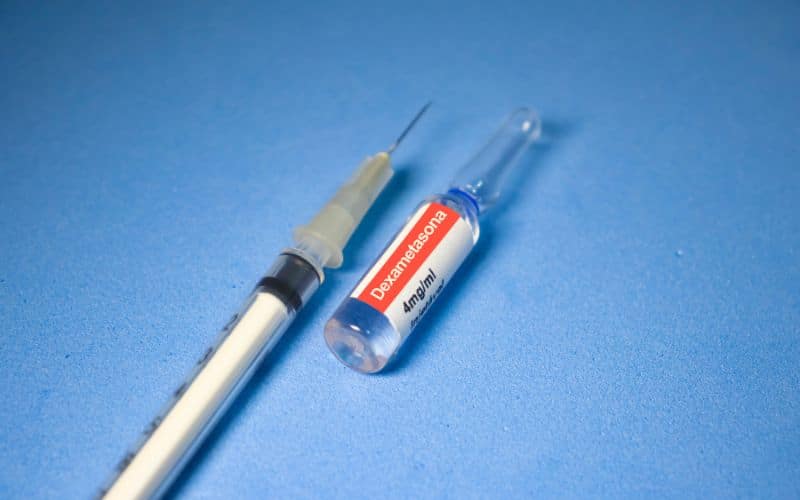
Weight gain is a potential side effect of cortisone shots, and it can be frustrating for patients who are trying to manage their weight. However, there are steps you can take to minimize weight gain and even lose weight after receiving a cortisone shot.
Dietary Changes
Making dietary changes is one of the most effective ways to manage weight gain after a cortisone shot. Here are some tips to help you get started:
- Avoid processed foods: Processed foods are often high in calories, sugar, and unhealthy fats. Instead, focus on eating whole, nutrient-dense foods like fruits, vegetables, lean proteins, and whole grains.
- Reduce your calorie intake: If you're trying to lose weight, you'll need to create a calorie deficit. This means consuming fewer calories than you burn each day. Use a calorie tracking app to help you stay on track.
- Limit your sugar intake: Sugar is high in calories and can contribute to weight gain. Try to limit your intake of sugary drinks, desserts, and snacks.
- Stay hydrated: Drinking plenty of water can help you feel full and reduce your appetite. Aim for at least eight glasses of water a day.
Physical Activity
Physical activity is another important component of weight management. Here are some tips to help you get moving:
- Start slow: If you're not used to exercising, start with low-impact activities like walking or swimming. Gradually increase the intensity and duration of your workouts as your fitness improves.
- Find an activity you enjoy: Exercise doesn't have to be a chore. Find an activity you enjoy, whether it's dancing, hiking, or playing a sport.
- Make it a habit: Consistency is key when it comes to exercise. Try to work out at least three to four times a week, and make it a part of your daily routine.
- Incorporate strength training: Strength training can help you build muscle, which can boost your metabolism and help you burn more calories. Try lifting weights, doing bodyweight exercises, or using resistance bands.
By making these simple changes to your diet and exercise routine, you can manage weight gain after a cortisone shot and work towards your weight loss goals. Remember, it's important to talk to your doctor before making any major changes to your diet or exercise routine.
Conclusion
In conclusion, weight gain after cortisone shots is a common side effect that can last for several weeks or even months. The amount of weight gained varies from person to person and depends on several factors, such as the dosage of cortisone, the frequency of injections, and the individual's metabolism.
While weight gain can be frustrating, it is important to remember that it is a temporary side effect and can be managed with a healthy diet and regular exercise. It is also important to note that cortisone shots are a valuable tool in managing pain and inflammation in various medical conditions, and the benefits often outweigh the risks.
If you are concerned about weight gain after a cortisone shot, it is recommended to speak with your healthcare provider. They can provide personalized advice on managing weight gain and offer alternative treatment options if necessary.
Overall, cortisone shots can be an effective treatment for pain and inflammation, but it is important to be aware of the potential side effects, including weight gain. By working with your healthcare provider and maintaining a healthy lifestyle, you can manage any weight gain and continue to live a healthy and active life.




